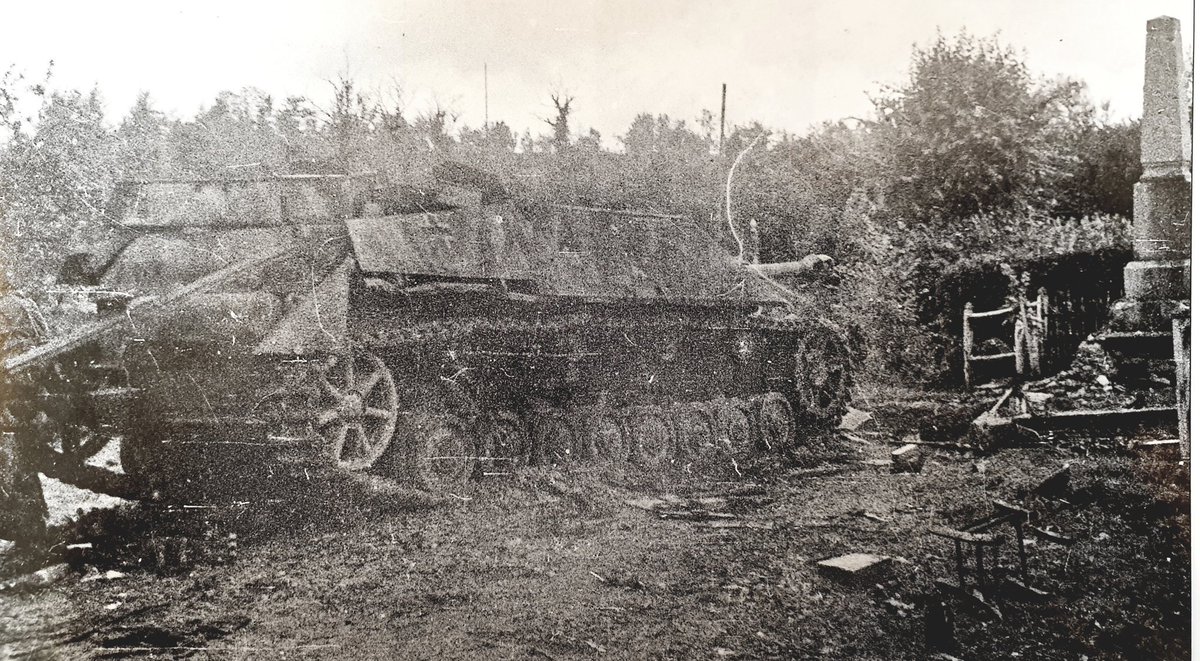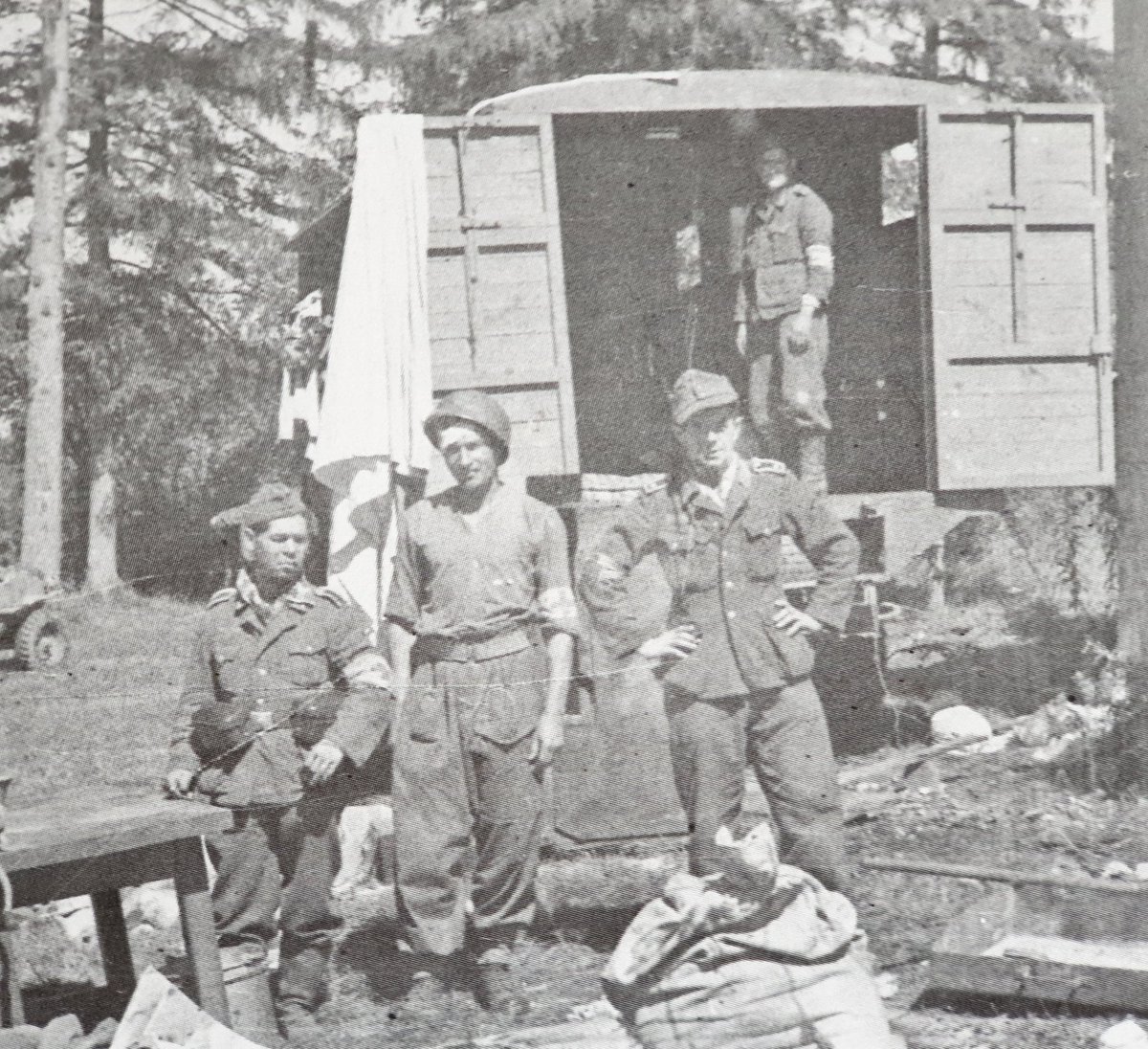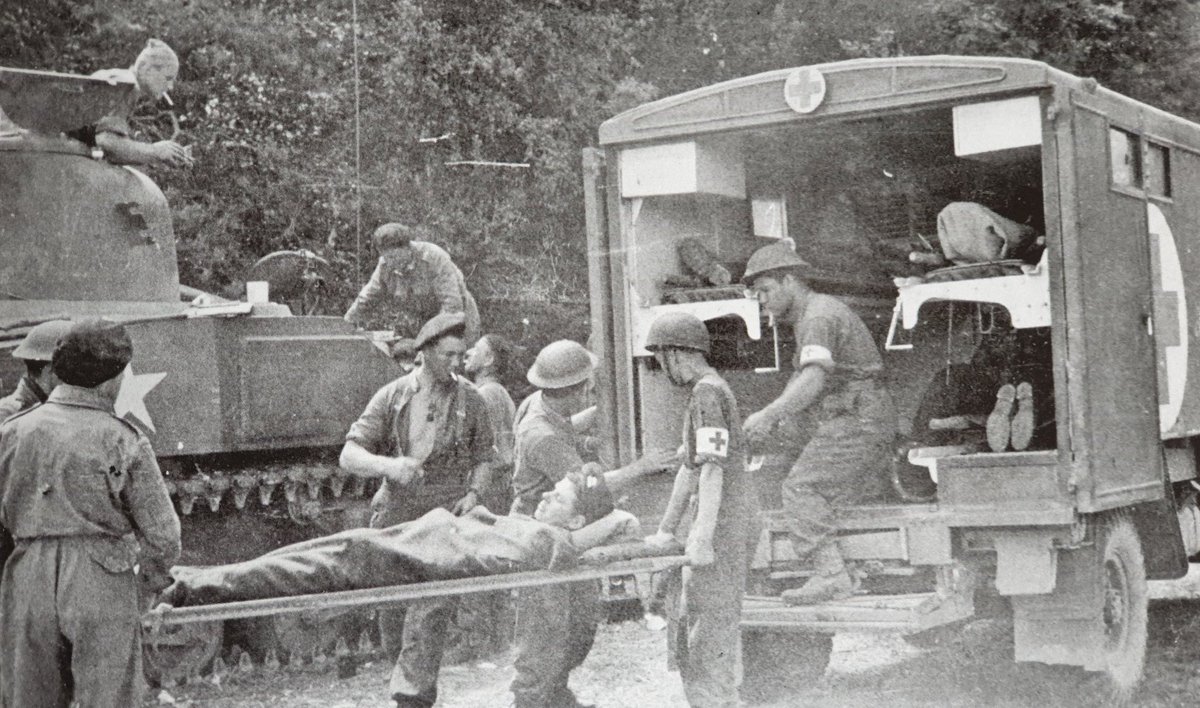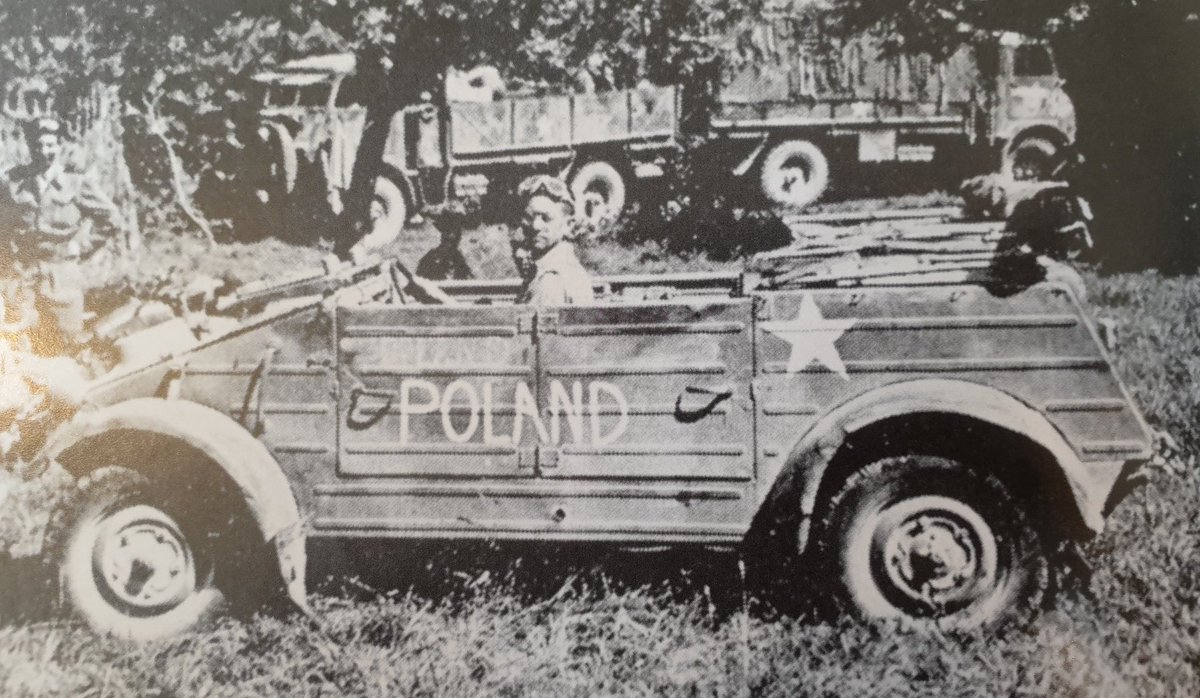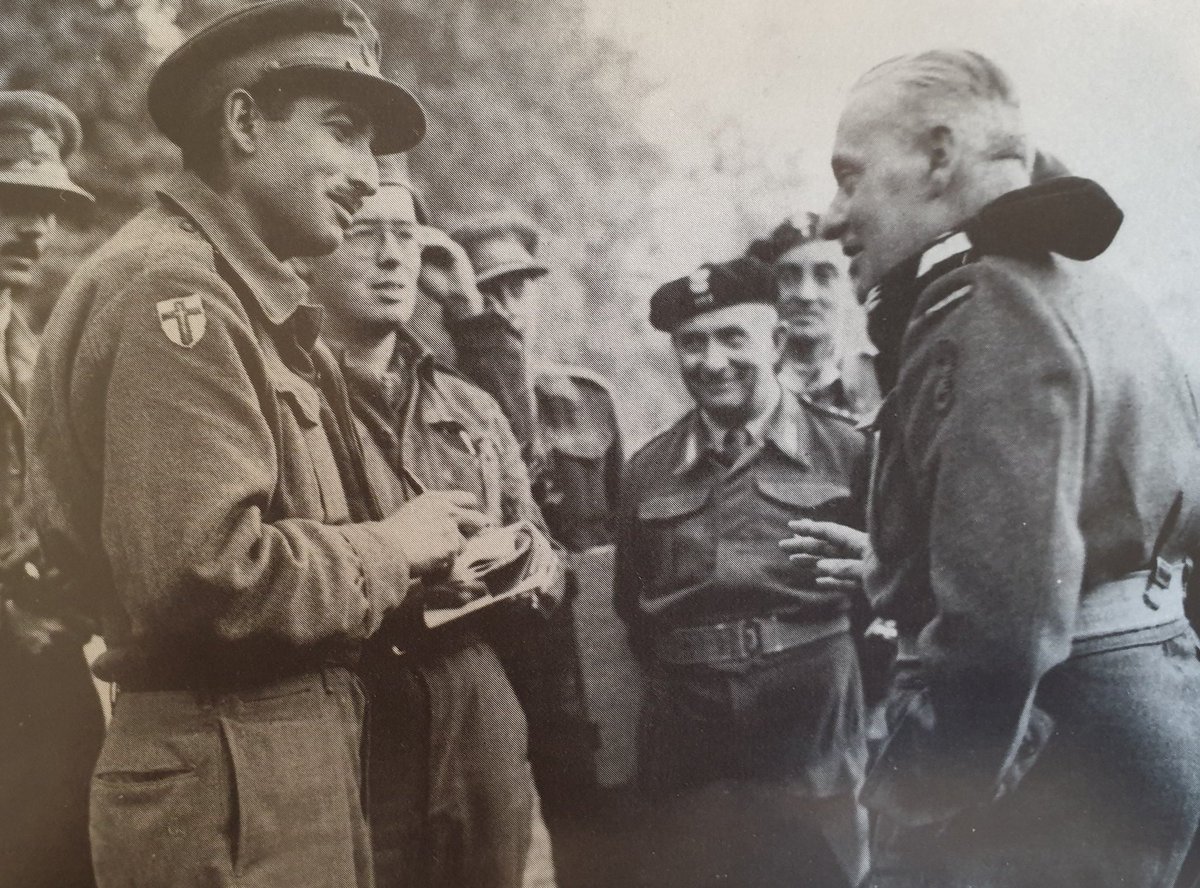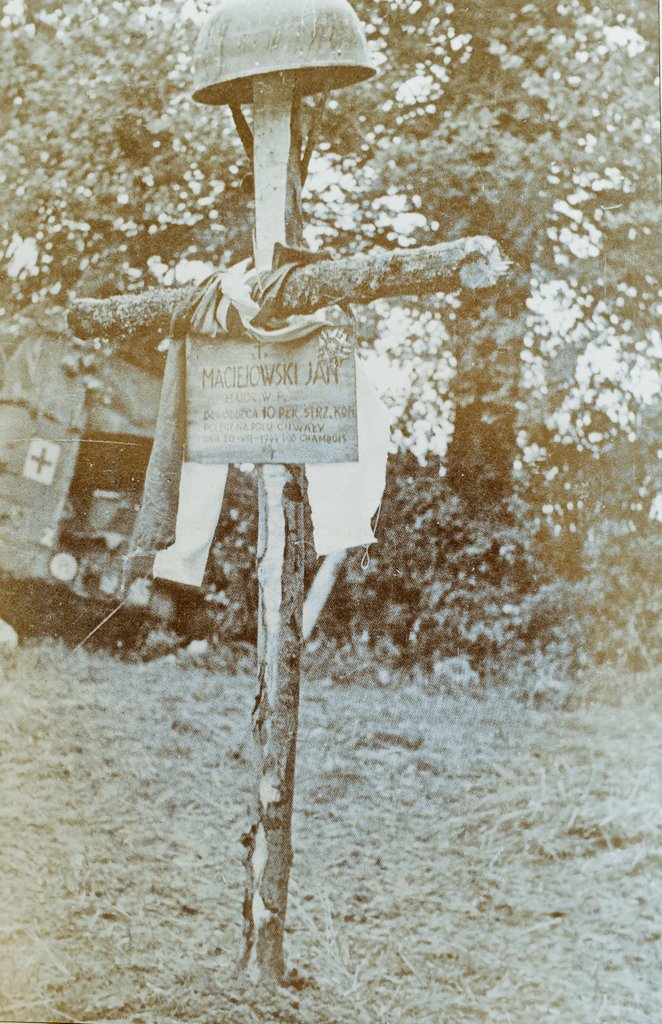1/
#OTD 21st August '44
Day 3 of the battle for Hill 262, #Maczuga.
"The scene was the grimmest we had ever encountered. The Poles had received no supplies for 3 days, they had several hundred wounded. Unburied dead, and parts of them, were strewn about."
#Maczek
#WW2
#OTD 21st August '44
Day 3 of the battle for Hill 262, #Maczuga.
"The scene was the grimmest we had ever encountered. The Poles had received no supplies for 3 days, they had several hundred wounded. Unburied dead, and parts of them, were strewn about."
#Maczek
#WW2
2/
21st Aug - the final day of the Battle of Hill 262, and of the Battle of Normandy, which would see the final closing of the #Falaise Gap.
At 7am, German infantry supported by 3 Panthers advanced from the south.
The ambulance unit came under fire, Jarzembowski reports.
21st Aug - the final day of the Battle of Hill 262, and of the Battle of Normandy, which would see the final closing of the #Falaise Gap.
At 7am, German infantry supported by 3 Panthers advanced from the south.
The ambulance unit came under fire, Jarzembowski reports.
3/
Father Hupa, padre of the 9th Infantry Battalion was killed, as were a number of wounded men when their ambulance was hit.
The attack was repelled, until a "suicidal" assault was launched by the Waffen-SS, up the steep slopes from the south.
...
Father Hupa, padre of the 9th Infantry Battalion was killed, as were a number of wounded men when their ambulance was hit.
The attack was repelled, until a "suicidal" assault was launched by the Waffen-SS, up the steep slopes from the south.
...
4/
The Poles turned their Crusader anti-aircraft guns on the advancing troops, and thus the final assault on 262 ended.
Maczek:
"The final attack on Maczuga was broken by the inflexible resistance of the Poles - and an assault launched by the 4th Canadian Armoured Division."
The Poles turned their Crusader anti-aircraft guns on the advancing troops, and thus the final assault on 262 ended.
Maczek:
"The final attack on Maczuga was broken by the inflexible resistance of the Poles - and an assault launched by the 4th Canadian Armoured Division."
5/
The Canadians had finally reached Maczuga at noon - the Poles had heard the rumble of Shermans in the distance.
"The Canadians provided us with everything we had lacked: ammunition, fuel, food, medical supplies.
They set up communication lines to evacuate the wounded."
The Canadians had finally reached Maczuga at noon - the Poles had heard the rumble of Shermans in the distance.
"The Canadians provided us with everything we had lacked: ammunition, fuel, food, medical supplies.
They set up communication lines to evacuate the wounded."
6/
Sevigny reports that "the Polish major greeted us, shaking with emotion. We laughed, we wept, we embraced each other.
The soldiers told long stories in Polish to the Canadians, who understood not a word but nevertheless broke into laughter!"
...
Sevigny reports that "the Polish major greeted us, shaking with emotion. We laughed, we wept, we embraced each other.
The soldiers told long stories in Polish to the Canadians, who understood not a word but nevertheless broke into laughter!"
...
7/
Eisenhower recalled his visit to the Falaise battlefields 48 hours later:
"I was conducted through it on foot, to encounter scenes that can only be described by Dante. It was literally possible to walk for 100s of yards, stepping on nothing but dead and decaying flesh."
...
Eisenhower recalled his visit to the Falaise battlefields 48 hours later:
"I was conducted through it on foot, to encounter scenes that can only be described by Dante. It was literally possible to walk for 100s of yards, stepping on nothing but dead and decaying flesh."
...
8/
McGilvray quotes from a letter from Monty to Churchill - even as a veteran of the First World War, he had never seen such signs of carnage.
Pilots flying at 500 feet, he reports, could smell the stench of dead animals and men.
...
McGilvray quotes from a letter from Monty to Churchill - even as a veteran of the First World War, he had never seen such signs of carnage.
Pilots flying at 500 feet, he reports, could smell the stench of dead animals and men.
...
9/
The British MOI press release:
"It was the Poles who played a leading role in sealing the Allied victory in Normandy.
During 6 days of very heavy fighting the Division took upon itself all the fury of 2 German SS Corps, taking about 5000 prisoners, including one general."
The British MOI press release:
"It was the Poles who played a leading role in sealing the Allied victory in Normandy.
During 6 days of very heavy fighting the Division took upon itself all the fury of 2 German SS Corps, taking about 5000 prisoners, including one general."
10/
Maczek writes that their combat together in Poland in '39, in France in '40, their years of training together in Scotland, had created a distinct bond.
The deaths were not abstract - they lost "a friend, a comrade, of many years."
"Sometimes it was their son, or cousin."
Maczek writes that their combat together in Poland in '39, in France in '40, their years of training together in Scotland, had created a distinct bond.
The deaths were not abstract - they lost "a friend, a comrade, of many years."
"Sometimes it was their son, or cousin."
11/
Above this, however, he took pride from the German report of 23rd August listing the fighting strength of the units which had escaped from the Gap:
"The Polish Division had played an important role in this "hecatomb" of 10 German armoured divisions.
Above this, however, he took pride from the German report of 23rd August listing the fighting strength of the units which had escaped from the Gap:
"The Polish Division had played an important role in this "hecatomb" of 10 German armoured divisions.
12/
Sosnkowski sent a telegraph to the celebration in Chambois on 22nd August:
"Your sacrifice will enable the rights of Poland to be established on an indestructible foundation."
6 months later, the Polish sacrifice would be forgotten - at Yalta.
Sosnkowski sent a telegraph to the celebration in Chambois on 22nd August:
"Your sacrifice will enable the rights of Poland to be established on an indestructible foundation."
6 months later, the Polish sacrifice would be forgotten - at Yalta.

 Read on Twitter
Read on Twitter